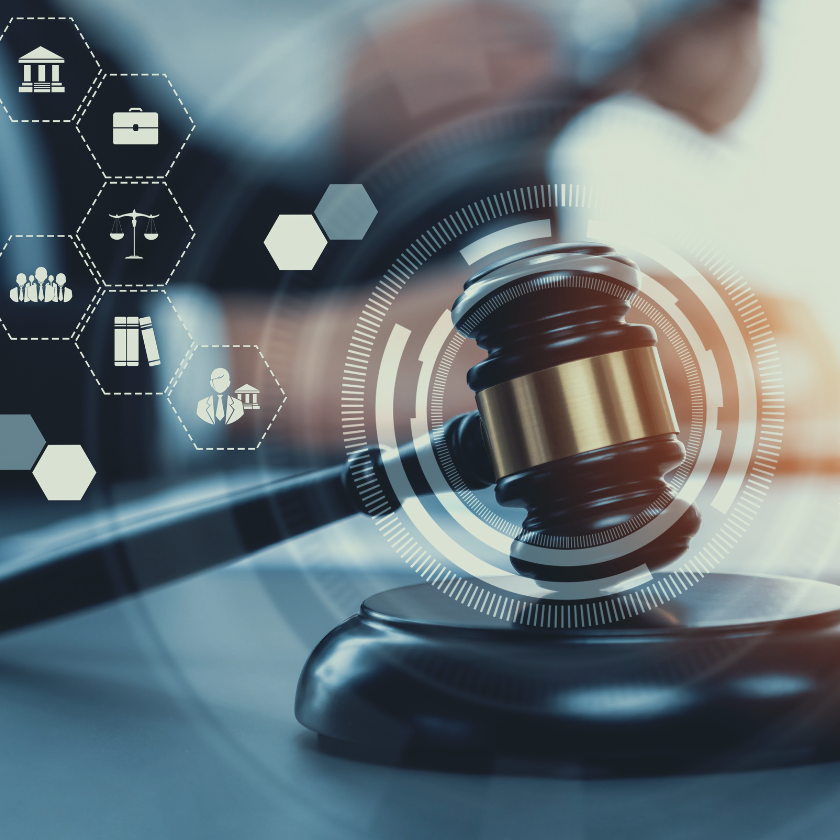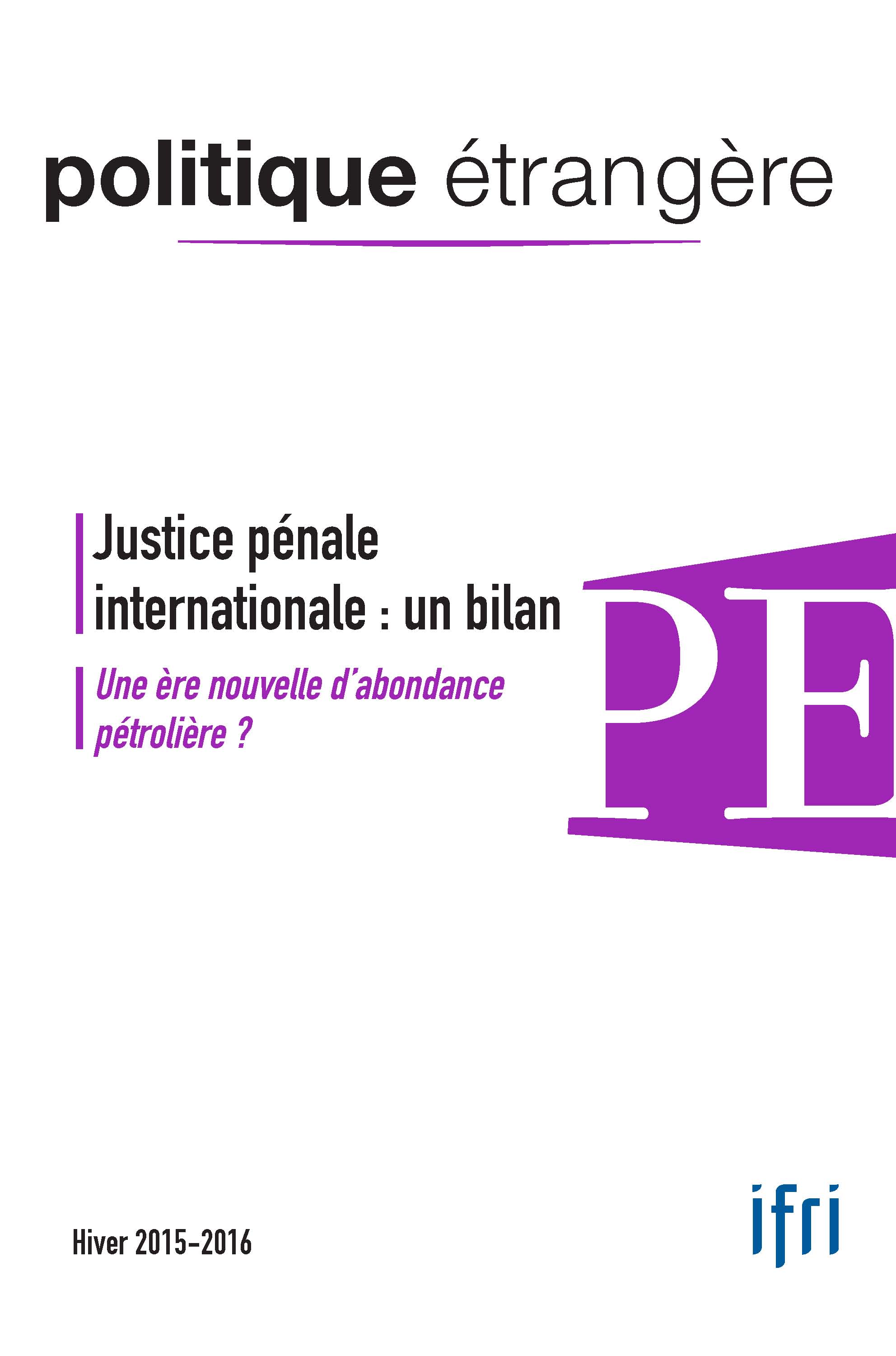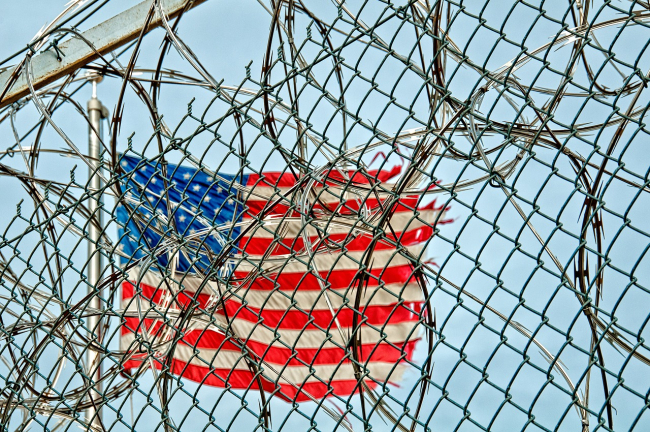Law and Justice
Regulating the world through law and justice is an old idea, but one that has run up against many difficulties. One growing phenomenon is the extraterritoriality of national legislation.


Assessing the Achievements of International Criminal Justice / A New Era of Oil Abundance?
Born from the ashes of two world wars, the concept of international criminal justice took nearly half a century to become anchored in institutions and legal concepts that are independent of specific conflicts. The International Criminal Tribunal for the former Yugoslavia, that for Rwanda, and the creation of the International Criminal Court, among others, bear witness to the real progress made during the 1990s. This issue of Politique étrangère offers a series of articles that shed light on these achievements and their limits.

The Right to Compensation at the ICC: Promises and Uncertainties
The establishment of the International Criminal Court (ICC) has made it possible for the victim to be fully recognized in international trials, with the assertion of the right to compensation for acts of genocide, crimes against humanity, and war crimes.

Rwanda: How to Judge Genocide?
The extraordinary nature of the 1994 massacres in Rwanda gave rise to the need for “complete justice”, operating judicial processes on several levels.

The ICTY Story: A Clear Failure?
Established to hold trials for crimes committed during the Yugoslav wars in the 1990s, the International Criminal Tribunal for the former Yugoslavia (ICTY) has vacillated between its punitive purpose and writing the history of this period.

International Criminal Justice at 70: Between the Iron and Golden Ages
The modern principle of international criminal justice goes back to Nuremberg and its highly specific historical context. The 1990s marks a decade of renaissance, for former Yugoslavia and Rwanda in particular.
Sentencing Reform in the United States
Since the 1980's the incarceration rate in the United States has climbed to unprecedened levels. Today, the United States incarcerates a higher proportion of its population than any other country in the world. Activists have long called for sentencing reform, recognizing the criminal justice system's racial bias and failure to rehabilitate. President Obama's recent call to action propelled the debate on the issue forward at an unprecedented pace but will proposed reforms be enough to end mass incarceration ?
Fragility Factors and Reconciliation Needs in Forest Guinea
In December 2013 the first Ebola cases surfaced in Guéckedou district, near the Liberian and Sierra Leon borders in the Forest Region of Guinea. The outbreak quickly spread from Forest Guinea to the rest of the country and, through the borders, to neighbouring countries. It took three months to identify the Ebola virus as the causative agent of the burgeoning epidemic, longer for the Guinean government to understand the importance of treating the outbreak as a national emergency, and even more time for everyone involved to appreciate the great social toll of Ebola.

Europe’s English Patient
Relations between London and the European construct are founded on a misunderstanding: for mainland Europeans, it represents a global political project, whereas for the British, the European Union is just one international institution among others.

Judicialization of the Battleground
The increasing judicialization of external military action is encouraging military law to fall into line with common law.

Terminator Ethics: Should We Ban “Killer Robots”?
Automatic lethal weapon systems are under debate and certain non-governmental organizations (NGOs) are demanding their precautionary prohibition.
Support independent French research
Ifri, a foundation recognized as being of public utility, relies largely on private donors – companies and individuals – to guarantee its sustainability and intellectual independence. Through their funding, donors help maintain the Institute's position among the world's leading think tanks. By benefiting from an internationally recognized network and expertise, donors refine their understanding of geopolitical risk and its consequences on global politics and the economy. In 2025, Ifri supports more than 80 French and foreign companies and organizations.








